Explore
Search results

It’s hard to be dispassionate about money. Whether we have a lot, not enough, or a comfortable amount of it, our emotional relationship with money is often fraught. Fascinating research on this subject reveals that luxury cars often provide no more pleasure than economy models, that commercials can actually enhance the enjoyment of watching television, and that residents o...

From the ancients to our forefathers to our modern-day achievement-obsessed culture, the question of what makes us happy continues to perplex. Why are we eternally fascinated by the pursuit of happiness, and will we ever agree about what makes us truly happy?

Author and Harvard professor Arthur Brooks introduces the exploding science of happiness, which combines philosophy, psychology, and neuroscience into a set of actionable strategies for everyday life. Learn how emotional self-management can transform the way we experience the world and improve all facets of life.

The United States is not a particularly happy country, according to the World Happiness Report. Issued annually by the UN Sustainable Development Solutions Network, the report puts the USA in 18th place, just above the United Kingdom and surpassed by all the Scandinavian countries, Costa Rica, Canada, and Australia, among others. The rankings are based on measures of incom...

Over a year of global isolation and calamity, many of us have experienced disappointment, loss of control, loneliness and isolation, and uncertainty about the future. Happiness has, perhaps, seemed elusive. And yet, Harvard social scientist Arthur Brooks argues, the pandemic has offered us ways to grow, in ways most unexpected, and given us life lessons that may actually h...

Most people think that happiness has four sources: the sensory pleasures (from art to chocolate), material wealth, romantic relationships, and children. But recent research suggests that much of what people think about happiness is wrong. Daniel Gilbert, author of “Stumbling on Happiness," hosts this symposium in which experts discuss what science has discovered about each...

What are the secrets to achieving authentic happiness? What activities and experiences lead to true flourishing? And why does happiness often feel so out of reach? Recent probing into these questions has found that the answers come not just from contemporary scientific studies in psychology and neuroscience but also from insights that philosophers and thinkers had centurie...

Rod Stryker is one of the world’s leading yoga and meditation teachers. He has helped thousands of people from all walks of life recognize their soul’s call to greatness and achieve their dreams. In this talk, Rod will outline the practical and powerful approach to embodying the highest principles of yoga without ever doing a yoga pose as well as how these ancient teaching...

Many of us fear that sooner or later we’ll be considered disposable, that our absence won’t be noticed, that our opinions won’t matter. What’s more, this fear becomes particularly intense as we age. So what can we do to avoid being reduced to a state of paralysis and misery? Behavioral economist and American Enterprise Institute president Arthur Brooks weaves together prom...
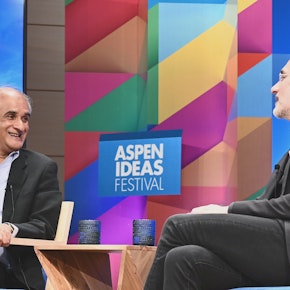
Essayist Pico Iyer and happiness guru Arthur Brooks reflect on how and why happiness is to be found even when the world feels like it’s falling apart. For starters, they’ve both learned a great deal from the Dalai Lama.

We're often taught that our surroundings are incidental to our well-being, but an emerging body of research shows that the physical world can be a powerful tool for cultivating happier, healthier lives. Studies show that workers in colorful offices are more alert, friendly, and confident than those in drab ones, that windows can speed healing, and children progress faster...
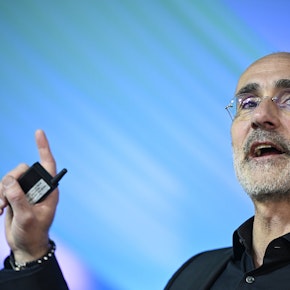
Throughout life, we are hounded by limitless desire. We search for fulfillment by striving for more money, power, pleasure, or prestige. But even for the most fortunate, it’s never enough. In truth, this is Mother Nature’s plan: She wants us to struggle and strive; she cares little if we are happy. There is a way out, however. It’s not to have more, but to want less. This...
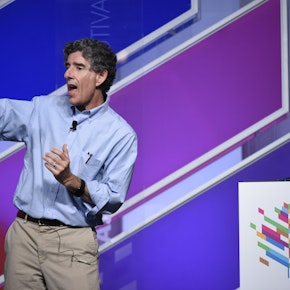
Scientific evidence suggests that we can change our brains by transforming our minds and cultivating habits of mind that will improve well-being. These include happiness, resilience, compassion, and emotional balance. Each of these characteristics is instantiated in brain circuits that exhibit plasticity and thus can be shaped and modified by experience and training. Menta...

Published studies have documented the many physical and mental health benefits of meditation, including decreased pain, better immune function, less anxiety and depression, a heightened sense of well-being, and greater happiness and emotional self-control. Google Scholar turns up almost 700,000 research documents on meditation, among them imaging studies that show increase...

The average American will spend a third of his or her life working. What is the secret to achieving happiness because of our work and not in spite of it? How can we make a job into a vocation? David Brooks and Arthur Brooks have both studied and written about these questions, and they argue that in all kinds of work the answer is to find meaning. In this conversation, the...
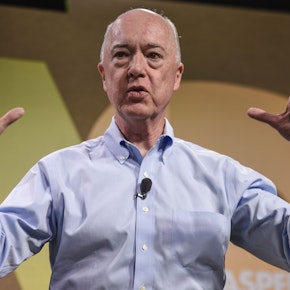
Atlantic Media owner David Bradley offers a personal story of what he knows now, at 64, that he didn’t know in his youth about coping with setback and disappointment. In small part a personal narrative, though much more the uncommon story of an American journalist held hostage by al Qaeda for 660 days — the talk focuses on the inescapability of personal setback and known f...
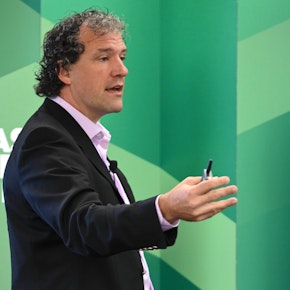
Connecting with others increases happiness and health, but people routinely forgo opportunities for positive connections with friends, family, neighbors, and even strangers. In experiments asking people to connect with strangers, express gratitude, perform random acts of kindness, give compliments, ask for help, and engage in constructive confrontation, there’s a consisten...

It is easy to take for granted the remarkable human ability to see, hear, smell, touch, and taste. Yet engaging fully with these remarkable tools of perception deepens our understanding of the world and paves the way to more mindful living. In her new book, Life in Five Senses: How Exploring the Senses Got Me Out of My Head and Into the World, author Gretchen Rubin draws o...
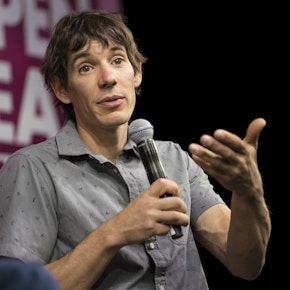
On June 3, 2017, Alex Honnold became the first person to climb the 3,000-vertical-foot granite face of Yosemite’s El Capitan, alone, without ropes, a feat that was chronicled in the Academy Award-winning documentary, Free Solo. In his New York Times op-ed column, Bret Stephens wrote that with that act, “Honnold gave an extraordinary gift to everyone who believes that the l...

Esther Perel is recognized as one of the most insightful and provocative voices on personal and romantic relationships and the complex science behind human interaction. The author of the international bestseller Mating in Captivity, Perel believes that the most traditional aspects of a culture and the most progressive and radical changes in a society take place around sexu...

